I'm working for a Fortune 100 company and I'm thrown into being tasked with security moving from SHA1 to SHA-2 . This is not my area of expertise, but as I study cryptography I am questioning the outdated information etc...
SHA-2 is obviously needed over SHA-1 but when the security team KNOWS that the hashing of password + salt is using SHA, with GPU being so ridiculously fast at cracking billions of hashes - I do not get why for passwords i'm not being told to use bcrypt or another equivalent that is slow , WHY?
I'm shown a powerpoint slide in which i'm told to create my salt 60,000 times. I searched all over the internet and I'm not seeing any such advise or examples. Why?
I'm using C#
string SaltAndPwd = string.Concat(plainTextPassword, salt);
SHA256 sha2 = SHA256Managed.Create();
byte[] buff = sha2.ComputeHash(Encoding.Unicode.GetBytes(SaltAndPwd));
I suppose that I'm not told to create a salt over and over, but to create the hash over and over.
Would this logic be appropriate?
string plainTextPassword = "aF7Cvs+QzZKM=4!";
string salt = "o9kc5FvhWQU==";
SHA256 sha2 = SHA256Managed.Create();
for(var i = 0; i <= 60000; i++)
{
byte[] buff = sha2.ComputeHash(Encoding.Unicode.GetBytes(SaltAndPwd));
}
How do I make this hashing to work properly?
Update found the powerpoint slide
Update with Code - Problem with implementation on verification of the hash
Problem is when I use the check on the code I'm trying
if (resultHash.Equals(hassPassword)) and it does not match...
public string BuildVerify()
{
string password = "";
string salt = "";
byte[] result;
using (var sha256 = SHA256.Create())
{
password = "hovercraft";
// step 1: you can use RNGCryptoServiceProvider for something worth using
var passwordHashing = new PasswordHashing();
salt = passwordHashing.CreateRandomSalt();
// step 2
string hash =
Convert.ToBase64String(sha256.ComputeHash(Encoding.UTF8.GetBytes(salt + password)));
// step 3
result = sha256.ComputeHash(Encoding.UTF8.GetBytes(salt + hash));
// step 4
for (int i = 0; i < 60000; i++)
{
result =
sha256.ComputeHash(Encoding.UTF8.GetBytes(salt + Convert.ToBase64String(result)));
}
}
// TESTING VERIFY this works ..
string SaltAndPwd = string.Concat(password, salt);
SHA256 sha2 = SHA256Managed.Create();
byte[] buff = sha2.ComputeHash(Encoding.Unicode.GetBytes(SaltAndPwd));
string resultHash = Convert.ToBase64String(buff);
string hassPassword = Convert.ToBase64String(result);
if (resultHash.Equals(hassPassword))
{
// perfect
}
return "";
}
public class PasswordHashing
{
public string CreateRandomSalt()
{
string password = "";
password = HashPassword.CreateSalt(8) + "=";
password = password.Replace("/", "c");
return password;
}
}
///
public static string CreateSalt(int size)
{
RNGCryptoServiceProvider rng = new RNGCryptoServiceProvider();
byte[] buff = new byte[size];
rng.GetBytes(buff);
return Convert.ToBase64String(buff);
}
NEW Question figured that I would go ahead and create a new question , thanks everyone in advance. Verification of Hashing password is not working
